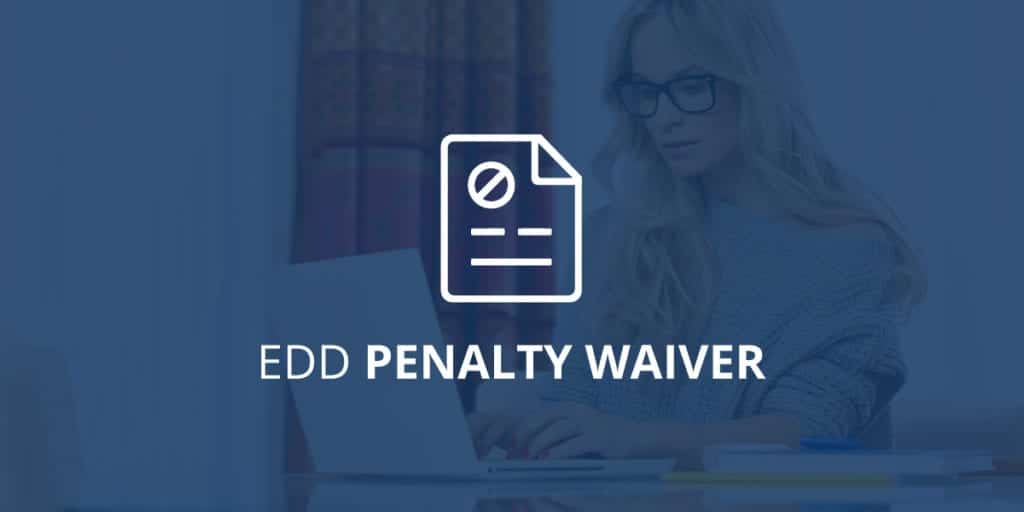
If your company has been assessed a penalty after being audited by the California Employment Development Department (EDD), the news isn’t all bad, your company may be entitled to a penalty waiver. The California EDD has a formal Waiver of Penalty Policy, and various provisions of California’s Unemployment Insurance Code include stipulations regarding the removal of EDD penalties.
“Good Cause” or “Reasonable Cause” for a Delay in Compliance
In order to be eligible for a penalty waiver, an employer must be able to establish “good cause” or “reasonable cause” for its failure to timely comply with certain provisions of California’s Unemployment Insurance Code. While the California EDD and the Unemployment Insurance Code use both of these terms, the California Unemployment Insurance Appeals Board (CUIAB) has interpreted both terms to have, “virtually the same meaning.” According to the California EDD:
“Good cause exists where the circumstances causing the delay are clearly beyond the control of the employer or where the delay is due to a mistake or inadvertence under circumstances not reasonably foreseeable by the employer.”
Examples of delays for which it may be possible to demonstrate good cause for removing an EDD penalty include:
- Delayed filing and payment of a Payroll Tax Deposit (DE 88) or Electronic Funds Transfer;
- Delayed filing and payment of a Quarterly Contribution Return and Report of Wages (DE 9);
- Delayed filing of a Quarterly Contribution Return and Report of Wages (Continuation) (DE 9C);
- Delayed filing of a Quarterly Contribution Wage Adjustment Form (DE 9ADJ) and payment of an adjustment;
- Delayed filing and payment of an Employer of Household Worker(s) Annual Payroll Tax Return (DE 3HW); or
- Delayed filing of an Employer of Household Worker(s)Report of Wages and Withholdings (DE 3BHW).
Demonstrating Good Cause for Removing a California EDD Penalty
A request for a California EDD penalty waiver must be submitted through the EDD’s e-Services for Business portal or in writing. The request must adequately explain why good cause exists for the delay. Factors that the California EDD will consider in determining whether to waive a penalty include:
- Whether the employer has a history of timely reporting and payment;
- Whether the employer acted diligently in addressing the delay; and,
- Whether the circumstances that caused the delay could have been reasonably foreseen.
The CUIAB has stated that lack of funds does not constitute good cause for a delay in payment of payroll tax regardless of whether the shortfall was foreseen. Likewise, if an employer misses a reporting or payment deadline due to the adoption of insufficient policies and procedures, this failure generally will not support the removal of a California EDD penalty. The CUIAB has also held that an employer’s reliance on a third-party service provider does not constitute good cause, as employers cannot insulate themselves from their legal liability by delegating their obligations to third parties.
Similar to all other matters involving the California EDD, when seeking a penalty waiver, the onus is on the employer. The employer must file a waiver request consistent with the EDD’s established procedures, and it must sufficiently demonstrate good cause for the delay. Since collection efforts and the accrual of interest will continue while the California EDD reviews a waiver request (unless the employer pays the amount due), it is important to file a request for a penalty waiver as soon as possible.
Southern California Tax Lawyers for EDD Waiver Requests and Other Payroll Tax Matters
If you need help dealing with the California EDD or need to request the removal of an EDD penalty, we encourage you to get in touch. Our tax lawyers represent employers throughout Southern California in all EDD-related matters. To get started with a free, no-obligation consultation, please call 619-595-1655 or inquire online today.

Leave a Reply